Only Organic Baby Food: The Healthiest Choice for Your Baby
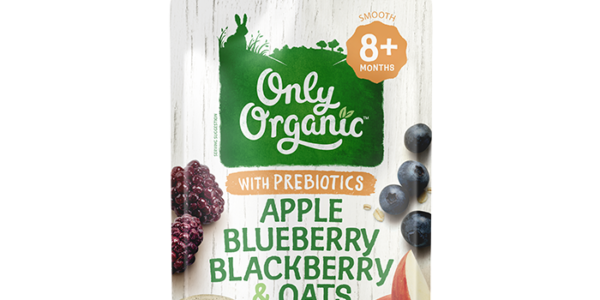
Organic baby food is gaining popularity among parents. They prefer it for its natural ingredients and lack of harmful chemicals.
Parents want the best for their babies. This includes the food they eat. This food offers a safer, healthier option. It is free from pesticides, artificial additives, and genetically modified organisms (GMOs). This means fewer toxins and more nutrients.
As more parents become aware of these benefits, they are making the switch to organic. In this blog, we will explore why this baby food is the best choice. We’ll look at its health benefits, safety, and nutritional value. Join us as we dive into the world of organic baby food and discover why it is the best option for your little one.
Introduction To Only Organic Baby Food
Choosing the right food for your baby is crucial. Many parents are turning to organic baby food for its numerous benefits. In this section, we will introduce you to organic baby food and why it might be the best choice for your little one.
Why Choose Organic?
This baby food is free from harmful chemicals. Conventional baby foods often contain pesticides and additives. These can be harmful to developing babies. Organic foods are grown without synthetic pesticides or fertilizers. This means fewer toxins for your baby.
This baby food also has more nutrients. Studies show organic produce contains higher levels of vitamins and minerals. Your baby gets more of the good stuff. Plus, organic farming is better for the environment. It uses sustainable practices. This means a healthier planet for your child to grow up in.
Understanding Organic Labels
Reading labels can be confusing. Here are some key terms to look for:
| Label | Meaning |
|---|---|
| 100% Organic | All ingredients are organic. |
| Organic | At least 95% of ingredients are organic. |
| Made with Organic Ingredients | At least 70% of ingredients are organic. |
Look for the USDA organic seal. This ensures the food meets strict standards. It’s a guarantee of quality.
Some products may be labeled “natural” or “non-GMO”. These are not the same as organic. Only the USDA organic label ensures the food is truly organic.
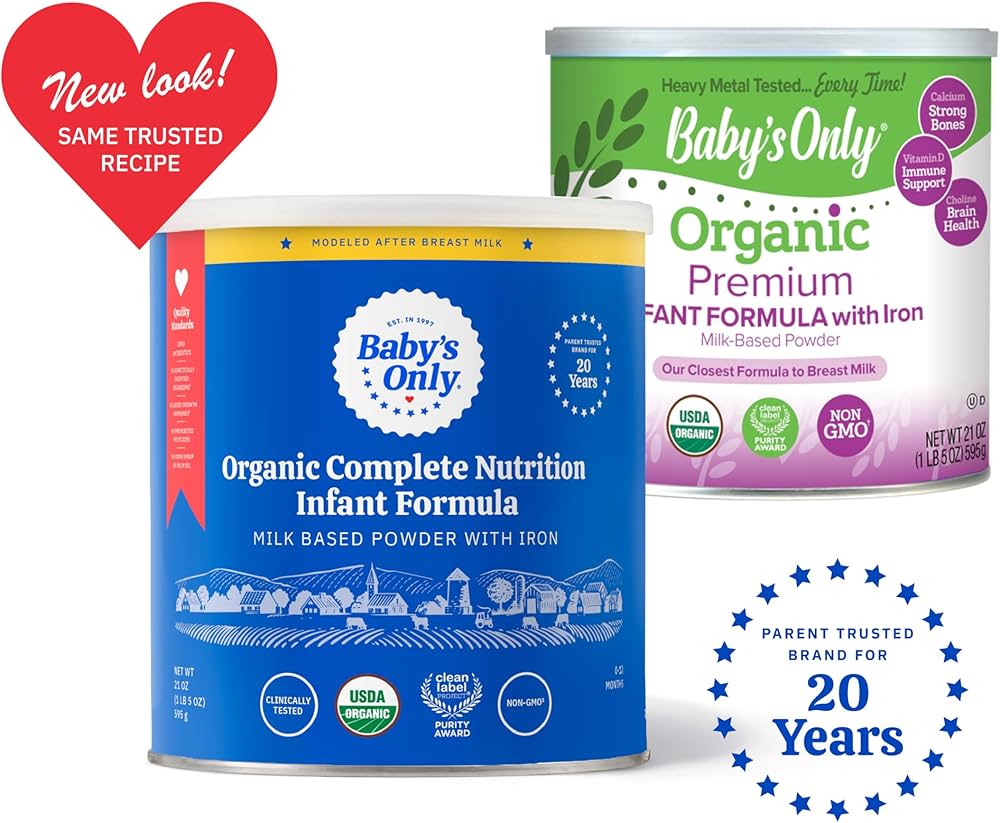
Nutritional Benefits of Only Organic Baby Food
This baby food offers numerous health advantages for your little one. These benefits ensure your baby gets the best start in life. Let’s explore the key nutritional benefits of feeding your baby only organic food.
Essential Nutrients
Organic baby food is rich in essential nutrients crucial for your baby’s growth. These nutrients include vitamins, minerals, and antioxidants. Organic fruits and vegetables contain higher levels of vitamin C and iron. These help in boosting your baby’s immune system and overall health.
- Vitamins: Organic foods are packed with vitamins such as A, C, and E. These vitamins promote healthy skin, eyes, and immune function.
- Minerals: Essential minerals like calcium and iron support bone development and oxygen transport.
- Antioxidants: These protect your baby’s cells from damage and support brain development.
Feeding your baby organic food ensures they receive these essential nutrients in their purest form. This can lead to better health and development.
Avoiding Harmful Additives
Organic babe food does not contain harmful additives. These additives can include preservatives, artificial colors, and flavors. Avoiding these additives is crucial for your baby’s health.
- Preservatives: Non-organic baby foods may contain preservatives to extend shelf life. These can have negative effects on your baby’s health.
- Artificial Colors: Synthetic colors can cause allergic reactions and hyperactivity. Organic baby food is free from these harmful substances.
- Flavors: Artificial flavors may alter your baby’s taste preferences. Organic food keeps your baby’s palate natural and healthy.
Choosing this baby food helps you avoid these harmful additives. This ensures your baby consumes only natural and safe ingredients.
Safety And Purity
Choosing organic babe food ensures your child gets safe and pure nutrition. The focus on safety and purity guarantees that the food is free from harmful substances. It also means that the food meets high standards set for baby products.
This food offers parents peace of mind. Knowing that their babies are consuming clean and natural ingredients, parents can feel secure. Let’s explore why safety and purity are essential in organic baby food.
Pesticide-free Foods
One significant benefit of organic baby food is that it is pesticide-free. Conventional farming uses pesticides to protect crops from pests. These chemicals can leave residues on food. Over time, these residues might build up in a baby’s small body.
Organic farming practices avoid harmful pesticides. This means that organic baby food is grown naturally. It is free from synthetic chemicals. This reduces the risk of exposure to toxins, ensuring your baby’s health.
Here is a quick comparison:
| Conventional Baby Food | Organic Baby Food |
|---|---|
| May contain pesticide residues | Pesticide-free |
| Uses synthetic chemicals | Uses natural methods |
No Gmos
Another vital aspect of organic baby food is the absence of GMOs (Genetically Modified Organisms). GMOs are plants or animals altered using genetic engineering. While they can improve crop yield, their long-term effects are still unknown.
Organic standards prohibit the use of GMOs. This ensures that the food your baby eats is natural. It is free from genetic modifications. Feeding your baby non-GMO food reduces potential health risks. It also promotes a more natural diet.
Benefits of no GMOs in organic baby food:
- Natural ingredients
- Reduced risk of unknown health issues
- Support for sustainable farming practices
Choosing organic babe food prioritizes your baby’s safety and health. It provides pure, natural nourishment without harmful additives. This makes it a smart choice for concerned parents.
Environmental Impact of Only Organic Baby Food
Choosing this baby food has a significant positive impact on the environment. By supporting organic farming, you help reduce pollution, conserve water, and promote soil health. Let’s explore how sustainable farming practices and reducing carbon footprint contribute to a better planet.
Sustainable Farming Practices
Organic farming relies on sustainable practices that protect the environment. These methods include crop rotation, composting, and natural pest control. These techniques enhance soil fertility and biodiversity.
Farmers avoid using synthetic fertilizers and pesticides. This means fewer chemicals in our soil and water systems. The result is cleaner water and healthier ecosystems.
| Practice | Benefit |
|---|---|
| Crop Rotation | Prevents soil depletion |
| Composting | Enhances soil fertility |
| Natural Pest Control | Reduces chemical use |
Reducing Carbon Footprint
Organic farms often use methods that reduce their carbon footprint. For instance, they use less fossil fuel-based fertilizers. This helps lower greenhouse gas emissions.
Furthermore, organic farming encourages local food production. This reduces the need for long-distance transportation. Shorter supply chains mean less fuel consumption and fewer emissions.
- Using renewable energy sources
- Implementing energy-efficient practices
- Supporting local markets
By choosing organic baby food, you support farming practices that are better for our planet. You help reduce carbon emissions and promote a healthier environment.
Taste And Variety of Only Organic Baby Food
When it comes to feeding your baby, nothing beats the taste and variety. From the rich, natural flavors to the wide range of options, organic babe food offers an unparalleled culinary experience for your little one.
Natural Flavors
Organic baby food is known for its natural flavors. Since it’s made without artificial preservatives or additives, the taste is pure and authentic. Babies can enjoy the real taste of fruits and vegetables.
For example, organic applesauce tastes like fresh apples, not like sugary syrup. Sweet potatoes taste earthy and sweet, just as they should. These natural flavors help develop your baby’s palate.
Parents also notice the difference. They often taste the baby’s food themselves and prefer the authentic taste. Eating organic means your baby enjoys the true flavors of nature.
Wide Range Of Options
Organic child food offers a wide range of options. There are many flavors and combinations to choose from, so your baby can try different tastes and textures.
Here is a table showing some popular organic baby food options:
| Flavor | Description |
|---|---|
| Apple & Carrot | A sweet and savory blend, perfect for introducing vegetables. |
| Peach & Banana | A tropical mix, ideal for a sweet treat. |
| Spinach & Pear | A unique combination, great for adventurous eaters. |
| Blueberry & Sweet Potato | A nutrient-rich blend, full of antioxidants. |
With so many options, you can keep mealtime exciting. Babies can try something new every day. This variety helps them develop a love for healthy foods early on.
Parents can also mix and match flavors. Create custom blends to suit your baby’s taste. This flexibility makes organic baby food a versatile choice.
Choosing only organic babe food means giving your child the best in taste and variety. It’s a decision that benefits both their health and their taste buds.
Cost Considerations of Only Organic Baby Food
Choosing this baby food offers numerous benefits but can be costly. This section provides insights into budgeting and long-term health savings.
Budget-friendly Tips
- Buy in bulk: Purchasing larger quantities often reduces the cost per unit.
- Seasonal produce: Opt for fruits and vegetables in season. They are cheaper and fresher.
- Homemade meals: Preparing baby food at home can be more economical. You control the ingredients and save money.
- Store brands: Some store brands offer organic options at lower prices.
- Coupons and discounts: Look for coupons and sales. Many brands offer discounts to loyal customers.
Long-term Health Savings
Investing in organic baby food now can lead to significant health savings later. Here are some reasons why:
- Fewer health issues: Organic food reduces exposure to pesticides and chemicals. This can lead to fewer health problems in the long run.
- Stronger immune system: A diet rich in organic foods can boost your child’s immune system. This results in fewer doctor visits and medications.
- Better development: Nutrient-dense organic foods support better physical and mental development. This can enhance your child’s overall well-being and performance in school.
| Conventional Food | Organic Food |
|---|---|
| Lower initial cost | Higher initial cost |
| Potential long-term health issues | Potential long-term health savings |
| Less nutrient-dense | More nutrient-dense |
Considering these cost factors can help you make an informed decision about organic baby food. Investing in your child’s health now can lead to significant benefits in the future.
Making The Transition
Switching to organic baby food can be a rewarding choice. It ensures your baby gets the best nutrition. But, how do you make this transition smooth? Let’s explore how to introduce and gradually change to only organic baby foods.
Introducing Organic Foods
Start by adding one organic food at a time. This approach helps identify any allergies. Choose simple foods like organic apples, bananas, or carrots. These are easy to digest.
Here’s a simple table to help you with choices:
| Age | Organic Food |
|---|---|
| 6 months | Mashed organic bananas |
| 7 months | Pureed organic carrots |
| 8 months | Organic avocado |
Start with pureed or mashed foods. Gradually, you can introduce more variety. Ensure each new food is introduced with a gap of 3-5 days. This helps monitor any reactions.
Gradual Changes
Transitioning to organic baby food should be slow. Replace one meal with an organic option. Observe how your baby responds.
Here is an ordered list to guide you:
- Start with breakfast. Introduce organic oatmeal or fruit.
- After a week, move to lunch. Use mashed organic vegetables.
- Finally, switch dinner to organic options.
Consistency is key. Keep the diet balanced. Include a mix of fruits, vegetables, and grains. Avoid sudden changes. This keeps your baby’s digestion stable.
Here are some tips for a smooth transition:
- Maintain a routine.
- Stay patient.
- Monitor your baby’s health.
Remember, the goal is to provide better nutrition. Organic foods are free from chemicals and pesticides. This makes them a healthier choice for your baby.
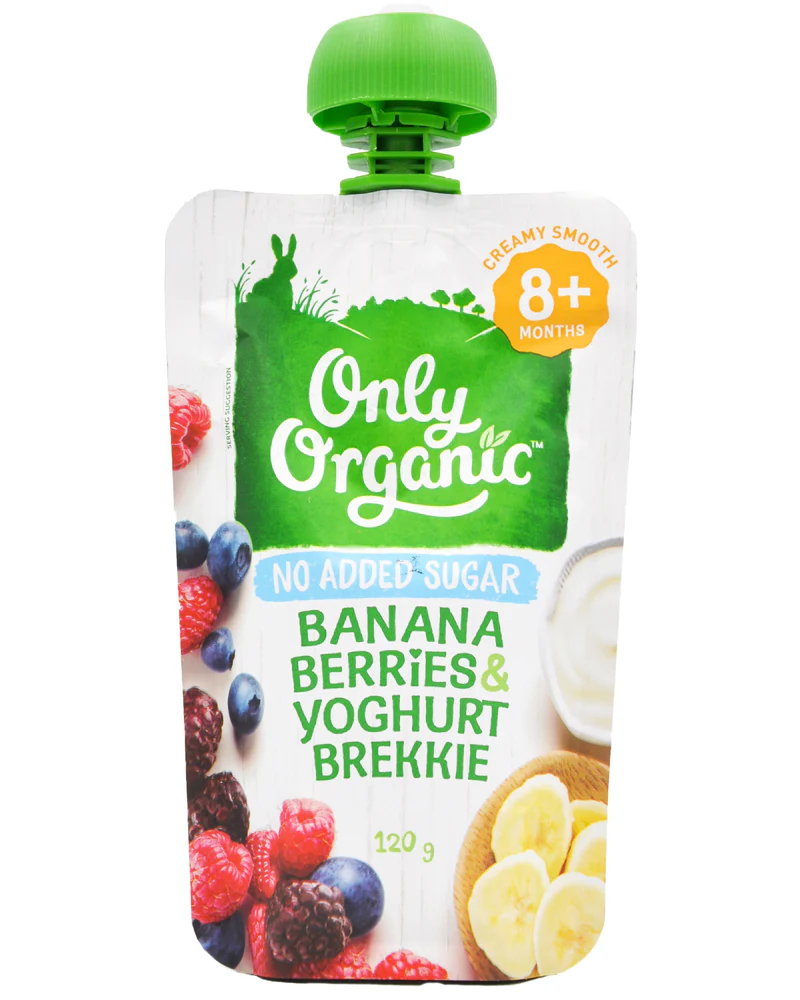
Shopping For Organic Baby Food
Choosing the best organic baby food can be a daunting task. Parents want to provide the healthiest options for their little ones. This guide will help you shop for this baby food with confidence.
Trusted Brands
Many parents look for trusted brands for quality assurance. Here are some well-known brands that offer organic baby food:
- Gerber Organic – Known for a wide range of organic options.
- Earth’s Best – Offers organic foods from infant to toddler age.
- Plum Organics – Focuses on organic ingredients and sustainability.
- Happy Baby – Provides organic baby food with various dietary needs.
Reading Labels Effectively
Reading labels is crucial for selecting the best organic baby food. Here are some tips to read labels effectively:
- Look for the USDA Organic seal. This ensures the food is at least 95% organic.
- Check the ingredient list. The fewer ingredients, the better.
- Avoid foods with added sugars or artificial preservatives.
- Look for words like “non-GMO” and “no artificial flavors”.
- Pay attention to the expiration date to ensure freshness.
Comparing Products
| Brand | Organic Certification | Main Ingredients | Price Range |
|---|---|---|---|
| Gerber Organic | USDA Organic | Fruits, Vegetables | $1-$3 per jar |
| Earth’s Best | USDA Organic | Whole Grains, Fruits | $1.5-$4 per jar |
| Plum Organics | USDA Organic | Blended Fruits, Veggies | $2-$4 per pouch |
| Happy Baby | USDA Organic | Superfoods, Dairy-Free | $1.5-$5 per pouch |
Shopping for this food requires careful consideration. Trustworthy brands and reading labels effectively can help you make informed decisions. Your baby’s health is worth it.
Diy Organic Baby Food
Preparing DIY Organic Baby Food can be a rewarding experience. It ensures your baby gets the best nutrients without additives. Making your baby’s food at home is economical and allows you to control what goes into their tiny bodies. Below, discover some easy homemade recipes and essential tools for creating nutritious meals for your little one.
Homemade Recipes
Creating organic baby food at home doesn’t have to be complicated. Here are some simple and nutritious recipes:
- Sweet Potato Puree: Peel and chop a sweet potato. Steam until tender. Blend with a little water until smooth.
- Apple and Carrot Mash: Peel, core, and chop apples and carrots. Steam together until soft. Blend to a smooth consistency.
- Banana Avocado Mash: Mash one ripe banana and half an avocado together. Serve fresh.
Essential Tools
Having the right tools can make creating organic baby food easier and faster. Here are some essentials:
| Tool | Purpose |
|---|---|
| Blender | For pureeing fruits and vegetables to a smooth consistency. |
| Steamer | To cook vegetables and fruits while preserving nutrients. |
| Freezer Trays | For storing batches of baby food for later use. |
| Baby Spoons | To feed your baby with safe and soft utensils. |
Using these tools and recipes, you can provide your baby with wholesome, nutritious meals. Preparing this food at home ensures you know exactly what your baby is eating. It’s a great way to start their journey toward healthy eating habits.
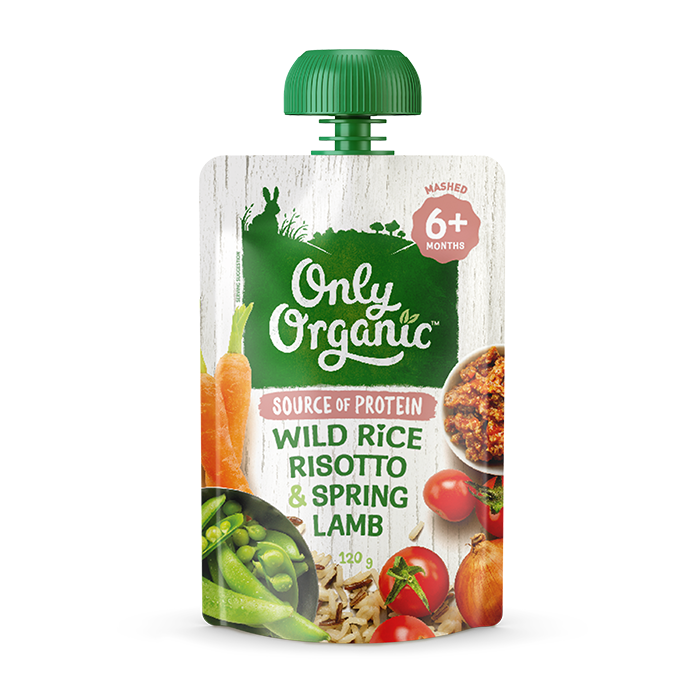
Frequently Asked Questions
What Is Organic Baby Food?
This food is made from natural ingredients. It is free from pesticides, synthetic fertilizers, and GMOs.
Why Choose Organic Baby Food?
Choosing this baby food ensures your baby eats healthier. It reduces exposure to harmful chemicals and promotes better growth.
Is Organic Baby Food Healthier?
Yes, organic baby food is healthier. It has more nutrients and fewer harmful residues than conventional baby food.
How Do I Know If Baby Food Is Organic?
Look for the organic certification label. Certified organic baby food meets strict standards and regulations.
Conclusion
Choosing only organic baby food ensures your child gets the best nutrition. It helps avoid harmful chemicals and supports healthy growth. Organic options protect little ones from pesticides and GMOs. They offer natural, wholesome ingredients. Many parents prefer organic for peace of mind.
It is a safe, smart choice for your baby’s diet. Start early with organic, and build a strong foundation for their future health. Your baby deserves the best, naturally. Always read labels and choose trusted organic brands. Your careful choices today shape a healthier tomorrow for your child.
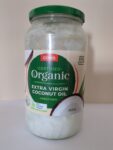
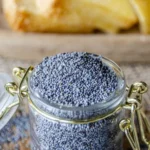

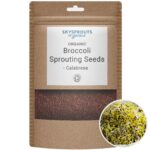
Leave a Reply